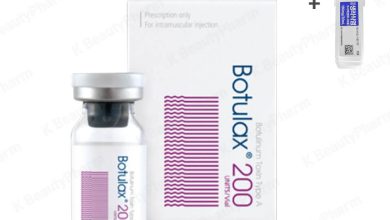Understanding Gut Health Tests: A Comprehensive Guide to Gut Microbiome Analysis

Introduction:
In recent years, the importance of gut health has gained significant attention in both medical and wellness circles. The gut microbiome, a complex community of microorganisms residing in our digestive tract, plays a crucial role in our overall health and well-being. Research has linked the gut microbiome to various aspects of health, including digestion, immunity, mental health, and even weight management. Consequently, there has been a growing interest in understanding and optimizing gut health.
One of the key tools in this endeavor is the gut health test. In this article, we will delve into the intricacies of gut health test, exploring its significance, methods, and implications for personal health management.
What is a Gut Health Test?
A gut health test, also known as a gut microbiome test or gut microbiome analysis, is a diagnostic tool used to assess the composition and function of the gut microbiome. This analysis provides insights into the diversity of microorganisms present in the gut, their abundance, and their potential impact on health.
The test typically involves collecting a stool sample, which contains a rich assortment of microorganisms shed from the gastrointestinal tract. This sample is then analyzed using various techniques to identify and quantify the different types of bacteria, viruses, fungi, and other microbes present in the gut.
Why is Gut Health Testing Important?
The gut microbiome plays a vital role in maintaining gut health and overall well-being. It aids in digestion, nutrient absorption, and the synthesis of essential vitamins and minerals. Moreover, the gut microbiome interacts with the immune system, influencing immune function and response to pathogens.
Imbalances or disturbances in the gut microbiome, known as dysbiosis, have been associated with a range of health conditions, including gastrointestinal disorders like irritable bowel syndrome (IBS), inflammatory bowel disease (IBD), and colorectal cancer. Additionally, research has linked gut dysbiosis to conditions such as obesity, diabetes, autoimmune diseases, and even mental health disorders like depression and anxiety.
By assessing the composition and function of the gut microbiome through testing, individuals can gain valuable insights into their digestive health and overall well-being. This information can help identify potential imbalances or risk factors for certain health conditions, allowing for targeted interventions and personalized treatment approaches.
Types of Gut Health Tests:
Several methods are used to analyze the gut microbiome, each offering unique insights into microbial composition and function. Some common techniques include:
-
16S rRNA sequencing: This method targets a specific region of bacterial DNA (16S rRNA) to identify and quantify different bacterial species present in the gut. It provides information about bacterial diversity and relative abundance but may not capture other microbes like fungi or viruses.
-
Shotgun metagenomic sequencing: Unlike 16S rRNA sequencing, shotgun metagenomic sequencing analyzes all genetic material present in a stool sample, including bacteria, viruses, fungi, and parasites. This comprehensive approach allows for a more detailed assessment of microbial diversity and function.
-
Microbiota-associated metabolomics: This technique focuses on analyzing the metabolites produced by gut microbes, providing insights into microbial activity and its impact on host health. By measuring metabolite levels in stool samples, researchers can assess metabolic function and potential imbalances in the gut microbiome.
-
Functional assays: These tests evaluate the functional capabilities of the gut microbiome, such as its ability to metabolize certain nutrients or produce beneficial compounds like short-chain fatty acids (SCFAs). Functional assays provide insights into how the gut microbiome influences host physiology and health outcomes.
Interpreting Gut Health Test Results:
Once the gut health test is completed, the results are analyzed to determine the composition, diversity, and function of the gut microbiome. Interpretation of these results requires expertise in microbial ecology and bioinformatics, as well as an understanding of how specific microbial patterns correlate with health outcomes.
Key metrics often assessed in gut health testing include:
-
Microbial diversity: A diverse gut microbiome with a wide range of bacterial species is generally associated with better health outcomes. Low microbial diversity, on the other hand, may indicate dysbiosis and an increased risk of certain health conditions.
-
Abundance of specific microbial taxa: Certain bacterial species or groups may be associated with either positive or negative health outcomes. For example, an overgrowth of pathogenic bacteria like Clostridium difficile can cause gastrointestinal infections, while beneficial bacteria like Bifidobacterium and Lactobacillus are associated with improved gut health.
-
Functional potential: Analysis of microbial genes and metabolic pathways can provide insights into the functional capabilities of the gut microbiome, such as its ability to ferment dietary fiber, produce vitamins, or modulate immune function.
-
Metabolite profiles: Measurement of metabolites in stool samples can reveal important information about microbial activity and its impact on host metabolism. For example, low levels of short-chain fatty acids (SCFAs), which are produced by gut bacteria during fermentation, may indicate impaired microbial function and increased risk of gastrointestinal disorders.
Implications for Personalized Health Management:
Armed with insights from gut health testing, individuals can take proactive steps to optimize their gut health and overall well-being. Personalized recommendations may include:
-
Dietary modifications: Adjusting dietary intake to promote a healthy gut microbiome, such as increasing fiber-rich foods, fermented foods, and prebiotics (which feed beneficial gut bacteria).
-
Probiotic supplementation: Introducing beneficial bacteria through probiotic supplements may help restore microbial balance in the gut and alleviate symptoms of dysbiosis.
-
Lifestyle changes: Factors like stress, sleep, and physical activity can impact gut health. Implementing stress-reduction techniques, prioritizing adequate sleep, and engaging in regular exercise can support a healthy gut microbiome.
-
Targeted interventions: For individuals with specific health conditions or risk factors identified through gut health testing, targeted interventions may be recommended, such as antimicrobial therapy, dietary supplements, or probiotic strains tailored to their microbial profile.
Conclusion:
Gut health test offers valuable insights into the complex ecosystem of the gut microbiome, allowing individuals to better understand their digestive health and make informed decisions about their well-being. By assessing microbial composition, diversity, and function, gut health tests empower individuals to take proactive steps toward optimizing their gut health and overall quality of life. As research in this field continues to advance, personalized approaches to gut health management are likely to play an increasingly prominent role in preventive medicine and holistic health care.




